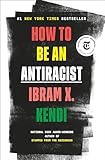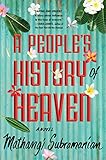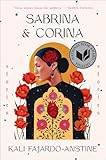When I was young, I had two types of reading: public reading and private reading. Public reading was reading I accomplished mostly to have something to talk about with other kids at school, while private reading was only for myself. These two lives of mine sat in tension. Why was I reading one thing to talk about, to be part of society, and another thing to experience privately? Unknown. But as Maud Casey writes in The Art of Mystery, “The privacy of the singular mind, the privacy of consciousness, is one of fiction’s exceptional gifts to us,” and it was always the private reading, the deep one-to-one communion with another mind, that I valued more. This year I read certain books to stay tethered to the world—Shoshana Zuboff’s The Age of Surveillance Capitalism and Ibram X. Kendi’s How to Be an Antiracist and Ian Haney Lopez’s Merge Left: Fusing Race and Class, Winning Elections, and Saving America—but I also devoted myself with greater intensity to books I read only for the sustenance of my inner life.






 Back in March, a friend gave me a copy of her father’s favorite book, John Williams’s The Man Who Cried I Am, as part of a book exchange, and it was one of the best discoveries of the whole year. The Man Who Cried I Am is a provocative, civil rights era novel, a bestseller in 1967. It recounts the story of a Black American journalist Max Reddick and his fraught marriage to a Dutch woman, as well the King Alfred Plan, which is a CIA plot to intern and eliminate America’s Black population. There’s a brutal pain and anguish and thematic complexity and edge to this novel that’s so completely honest, never made easily digestible, never seeking to placate the reader, and I loved it.
Back in March, a friend gave me a copy of her father’s favorite book, John Williams’s The Man Who Cried I Am, as part of a book exchange, and it was one of the best discoveries of the whole year. The Man Who Cried I Am is a provocative, civil rights era novel, a bestseller in 1967. It recounts the story of a Black American journalist Max Reddick and his fraught marriage to a Dutch woman, as well the King Alfred Plan, which is a CIA plot to intern and eliminate America’s Black population. There’s a brutal pain and anguish and thematic complexity and edge to this novel that’s so completely honest, never made easily digestible, never seeking to placate the reader, and I loved it.
After Toni Morrison passed away over the summer, I visited and revisited a few of her novels. I was astonished to find that in my 40s Jazz read as a much more powerful novel than it did when I was a college student. I didn’t grasp in my early 20s the depth of Joe’s betrayal of his wife for a younger woman, or the ways that the younger woman’s people respond to the circumstances, and I struggled with its experimental qualities. This time around, I appreciated the genius of Morrison’s orchestration of so many characters, the boldness of a vision that knows it is worthy of being followed without any hand-holding, the way it reveals to us the ways imperfect characters miss understanding each other, just as we often miss each other in real life.
I’ve been a fan of the novelist Yoko Ogawa for years. I don’t know if she can write a book I wouldn’t be interested in. I was excited to read her masterful fable The Memory Police, which is set on a totalitarian island where everything is disappearing and memory police ensure what’s disappeared remains forgotten. The book lived up to my anticipation. Its resonance arises not from its relevance in a time of creeping fascism, but from the timelessness of its consideration of memory and how much a self is made up of the memory of things, and its question of what is left in us if we lose all those things.
Another writer I returned to this year as a fan was the brilliant Percival Everett. There was Erasure, a bleak, subversive, experimental novel reacting to the pigeonholing of Black writers and the commodification of “urban” experiences. In Percival Everett by Virgil Russell, a man visits his aging father in a nursing home and they tell each other stories, with father and son blending into the other. Everett’s So Much Blue was my favorite of these three: a beautiful novel made of three interwoven threads of time. As with Everett’s other novels, the narrator’s observations in So Much Blue are astute, often so sharp you feel you’ve been sliced open.
I delighted in the ambiguity and skepticism of Zadie Smith’s short story collection Grand Union. Every writer could learn from her almost compulsive willingness to consider she’s wrong about what she’s imagined, about everything she thinks she knows—her talent for questioning—and that tension of not-knowing drives the collection.
I loved The Atlas of Reds and Blues, a powerful debut novel by Devi Laskar, whose poetry I’d read before through the Tupelo 30/30 Project. In its fragments and linguistic intensity, it reads like the best poet’s novels do—with equal attention to language and story. It’s extremely rare to see the effects of years of racism and xenophobia against South Asian Americans laid out in such forceful and lyrical terms. Atlas insists—rightly—on its status as an American novel, blowing open the door for other acutely honest novels about the realities of South Asian American lives.




 I also loved Mathangi Subramanian’s heartfelt, compassionate novel A People’s History of Heaven. It is the story of a band of girls in a slum in Bangalore in India, and their bonds to each other and resistance to their grim reality. There’s so much truth resonating through this novel: “It is one thing to write stories to save others. It is another to write a story to save yourself.
I also loved Mathangi Subramanian’s heartfelt, compassionate novel A People’s History of Heaven. It is the story of a band of girls in a slum in Bangalore in India, and their bonds to each other and resistance to their grim reality. There’s so much truth resonating through this novel: “It is one thing to write stories to save others. It is another to write a story to save yourself.
I also discovered for the first time several wonderful authors whose fiction had been on my radar for some time. Among these was Carolina de Robertis’s Cantoras, a beautiful novel about five queer women who take a bold trip to the beach together while living under the Uruguayan dictatorship. The tender, moving intimacies between these different women, the fierce resolve within their private lives, provide the novel’s powerful enchantments.
I reviewed a number of the most inventive, original books I read this year, but I felt lucky at the sheer number of memorable debuts that drifted onto my radar. In the stark novel The Unpassing, Chia Chia Lin writes about a Taiwanese immigrant family in Alaska that is struggling to survive the loss of a daughter. The novel expresses a certain kind of dilemma so gorgeously, I physically ached in the recognition of reading it: “He had brought us to a place we didn’t belong, and taken us from a place we did. Now we yearned for all places and found peace in none.”




 In Kali Fajardo Anstine’s tender, and fearless short story collection Sabrina and Corina working-class Latina women survive poverty and loss. There are descriptions of living in here that are so true they hurt: “That’s when I knew she was forever caught in her own undercurrent, bouncing from one deep swell to the next. She would never lift me out of that sea.” I can’t wait to read what she writes next.
In Kali Fajardo Anstine’s tender, and fearless short story collection Sabrina and Corina working-class Latina women survive poverty and loss. There are descriptions of living in here that are so true they hurt: “That’s when I knew she was forever caught in her own undercurrent, bouncing from one deep swell to the next. She would never lift me out of that sea.” I can’t wait to read what she writes next.
In Mimi Lok’s elegant short story collection Last of Her Name, characters try to connect with each other in strange ways across a range of settings. In Lok’s story “The Wrong Dave,” an architect who is getting married receives an email, and strikes up a correspondence in which he’s unsure whether she knows with whom she’s emailing. The collection closes on a can’t-miss, suspenseful novella “The Woman in the Closet” about a homeless woman.
And I enjoyed, too, Sarah Vallance’s Prognosis: A Memoir of My Brain, Olga Zilberbourg’s Like Water, Sion Dayson’s As a River, and Claire Foster Rudy’s Shine of the Ever.
A galley of Lydia Davis’s Essays One was one of the books I most needed to read this fall. Its focus on precise observation from different angles served as a balm against the sloppy, blunt, ideologically rigid thinking found in so many places. There’s an essay about what to read, and I’ve been thinking about its advice for purposes of my reading next year: “Read the best writers from all different periods; keep your reading of contemporaries in proportion —you do not want a steady diet of contemporary literature. You already belong to your time.”
I anticipate my private reading life for 2020 to heed this advice, in spite of the dozen half-read books and galleys on my nightstand left unfinished for no apparent reason. The news is so essential to the development of a public self, a citizen, yet books are, for me, an urgently necessary bulwark, fortification for the deeper private self.
More from A Year in Reading 2019
Don’t miss: A Year in Reading 2018, 2017, 2016, 2015, 2014, 2013, 2012, 2011, 2010, 2009, 2008, 2007, 2006, 2005









